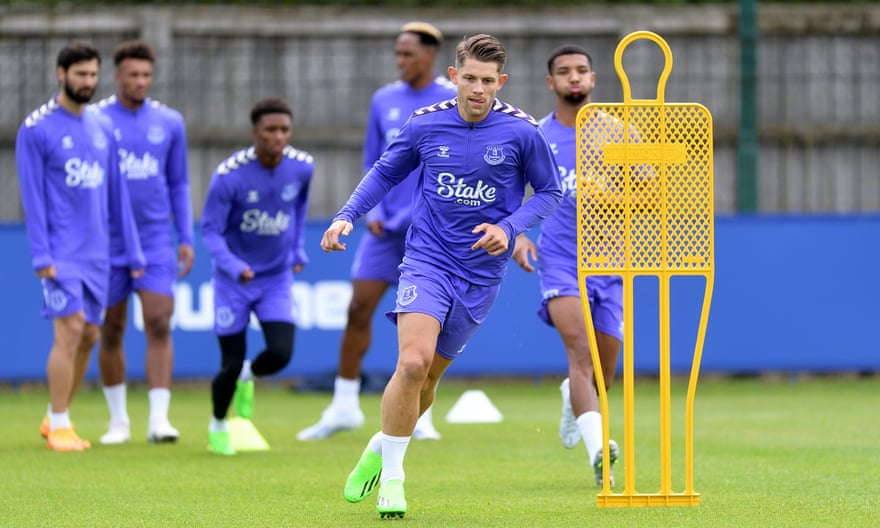id an expensively assembled squad seriously underperform last season or has the rot set in following years of mis-management by the club’s hierarchy? It falls to Frank Lampard to demonstrate it was the former, while being the latest Everton manager to be constrained by the latter, in his first full campaign in charge.
Lampard called for decisive action in the transfer market after the torturous late escape. Instead, owner Farhad Moshiri has asked to be judged at the end of the window having sold the best player, Richarlison, for an initial £50m to improve the balance sheet and faced renewed protests over his running of the club before the campaign has even begun.
The unity that developed between the fanbase and Lampard’s side last season, and played an instrumental role in Premier League survival, does not extend to those at the top. Lampard – his plea for reinforcements now finally being answered – can at least start anew with his vision for the team having spent the first months of his reign in game-by-game survival mode to preserve Everton’s top-flight status.
Whether the same group can adapt to his demands for greater intensity, pressing and speed without Richarlison will be key. The manager remains sensibly realistic on Everton’s development. “We’ll do it in steps,” he said. “We can’t expect next year we’re going to go to the moon. It won’t be that process from where we were last year. It will be a process of what’s the first thing we can improve and then keep on improving and that’s where we’re at now.”
The manager
One resource Lampard will not lack is the backing of the Everton crowd. The former Chelsea and Derby manager galvanised a previously divided and disillusioned fanbase following his appointment in January when, as is conveniently overlooked by his detractors, Everton were statistically the worst performing side in the Premier League under Rafael Benítez. Lampard inherited a team in free-fall, with confidence, spirit and performance levels all heading in the same direction, but eventually created a resilient group that answered criticism about its character to survive in the penultimate game. There were mis-steps along the way – the signings of Dele Alli and Donny van de Beek made little impact, although both were rushed through with Lampard appointed 24 hours before the transfer deadline, while attempts to play on the front foot led to some punishing defeats before a pragmatic style won out. A crash course in life at Everton, followed by a first pre-season, offers a foundation to build on.

Transfer coup
Several deals appear to be falling into place amid another summer of financial constraint and, as Moshiri claims, the squad could look very different at the close of the window than at the start. But James Tarkowski, signed on a free following his exit from relegated Burnley, is the only valid answer at the time of writing. That is not to understate the importance of his arrival. The 29-year-old brings many qualities Everton lacked in central defence last season – leadership, aerial prowess (Tarkowski ranked second for aerial duels won in the Premier League in 2021/22) and a reliable fitness record, having started more than 30 league games in each of the past five seasons.
World Cup impact
It reflects the paucity of Everton’s squad that only Jordan Pickford looks certain to go to the World Cup, although he could be accompanied by Dominic Calvert-Lewin should the striker regain the fitness and form that eluded him last season. Anthony Gordon’s progress could also result in a late call-up. With almost a full squad at their disposal Everton have agreed to play Celtic and Western Sydney Wanderers in the inaugural Sydney Super Cup between 20-23 November.
Alternative attractions during World Cup
Art of the Terraces – an exhibition celebrating the culture of football “casuals” in the 1970s, 80s and 90s through fashion, art and football – opens at the superb Walker Art Gallery on 5 November, just before the Premier League stops for the winter World Cup.
Comments
Post a Comment